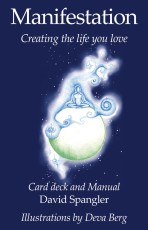By Claire Blatchford
 About a month ago my husband Ed and I were driving down the main street of Greenfield (a nearby town) around 4:30 pm. I was at the wheel, going about 20 MPH, there were no cars close behind us, we were on our way back from a 9 hour road trip to Boston, and were eager to get home.
About a month ago my husband Ed and I were driving down the main street of Greenfield (a nearby town) around 4:30 pm. I was at the wheel, going about 20 MPH, there were no cars close behind us, we were on our way back from a 9 hour road trip to Boston, and were eager to get home.
Suddenly about 20 feet ahead a pick-up truck with oversized tires appeared on a side road on our right and began rolling aggressively onto the main street. As far as I could see we had the right of way, but the driver, a burly guy who looked to be in his mid 50’s, was shouting at us and giving us the finger. Neither Ed nor I could understand what he was saying.
I slammed on the brakes. The truck quickly maneuvered into our spot and went roaring on down the road.
“WHAT was that about?” I asked. Ed looked as startled as I felt.
I usually shrug off incidents of this sort. Maybe the guy had been arguing with the person in the passenger seat beside him (whom we couldn’t see clearly) and that argument had spilled over into road rage. Maybe something about us reminded him of someone he didn’t like. Maybe he just felt like provoking us in the same way Linda (a deaf girl in one of my classes long ago) liked to provoke her teachers by giving them the finger every now and then, though she didn’t know what the gesture meant. That she got our attention whenever she did it was all that mattered.
But the road incident stays with me because the driver’s anger made me cringe. And I find myself cringing a bit too often. Not just uncivil folks on the road, but headlines on the news hour, in the newspaper, or on Facebook, make me cringe. Not to say I don’t have wonderful exchanges every day--but I’ve been thinking about the nature of this cringe. I feel it as a tightening in my stomach, often accompanied by the thought, “What next?” Sometimes— when it’s a really big cringe— my hands form in fists or I grind my teeth. I don’t want to listen to, or read, the rest of the news after reading the headlines because I assume the rest is ugly, fearful, disturbing, not to my liking. I have no interest in hearing more and feeling worse than I already do. What can I do about any of it anyway? Along this line I assumed that Saturday there was no point in initiating any form of contact with the driver of the pick-up truck. Why put us at risk by stopping in front of him or chasing after him? Who knows what he would’ve done if I’d tried to communicate with him.
This physical and psychological cringing has drawn my attention to the fact that I may be spending more time these days reacting to the world rather than responding to it. I asked myself what’s going on when I react. One dictionary definition of react is, “acting in opposition to a force or influence.” On my own I came up with a bunch of words: when I react I may become defensive, aggressive, constrictive, prickly, itchy, emotional, hot! Though I’d avoided an outer crash, I realized my reaction-- if I wanted to keep replaying it—could, to speak metaphorically, turn into an inner crash, a festering, an inability to move on.
It was clear to me at this point that a few too many of my reactions are about me—my irritation, impatience, outrage. While response, on the other hand, is, when it’s genuine, about the other or others. The feeling of response is so different. It can be generous, welcoming, opened handed. It’s about giving and taking, then giving some more, rather than pushing away. Reaction can be closed, as evidenced in the clenched fist. There’s often a finality to reacting. And, of course, there are times when that’s called for. Thank goodness I braked that Saturday! Response, however, reaches further and deeper than instinctive or impulsive reaction.
To explore a bit further the feel of the genuine response, here are two recent moments when I knew I was responding.
Cliff, a classmate in my pastel class, was showing me a composition he was working on. His paintings are architectural, of streets in towns with tall, unusual buildings alongside the road or in the distance. I could understand the sketch he was showing me but couldn’t see what was puzzling or bothering him about it. As I was eager to get on with my own work my inclination was to say, “It looks fine … keep going.”
 Yet from the look on Cliff’s face I knew he was asking for more than that. I looked again at his drawing, more intently this time, saw there was an unclear spot and saw too how it might be rectified. When I pointed out my suggestion, his face lit up. This was a five minute exchange yet, within those few minutes, I knew my response to be an acknowledgement of relationship, not just between two people but between two people and a world of possibilities—as they were being revealed in an art class. This was response at it’s most hopeful and joyful.
Yet from the look on Cliff’s face I knew he was asking for more than that. I looked again at his drawing, more intently this time, saw there was an unclear spot and saw too how it might be rectified. When I pointed out my suggestion, his face lit up. This was a five minute exchange yet, within those few minutes, I knew my response to be an acknowledgement of relationship, not just between two people but between two people and a world of possibilities—as they were being revealed in an art class. This was response at it’s most hopeful and joyful.
Then, a few hours later, a long-time friend threw me a curve.
Ann (not her real name) and I ran into each other at the store and I mentioned thinking Hillary Clinton was showing herself to be quite a work horse.
She stepped back, away from me, and snapped, “Don’t even say her name…she’s evil!”
Evil? I was astonished. I knew Ann had been a Bernie supporter, but I thought she would appreciate my sharing an observation that Clinton sure goes all out for what she wants to work for. Ann’s reaction made me feel a bit as though I, too, was evil because of the way I’d spoken of Hillary.
I wanted, in self-defense, to say,” Since when have you started throwing stones?” But knew that would be me reacting, me throwing a stone at her. My response was not to respond, at least not verbally. I gave her a quick hug and we went our separate ways.
This was response as self restraint.
I’m still listening into what Ann said, how she looked, where she might be. Listening, hoping, leaving the door open.
*
When in the sanctuary of my home—both our physical home and my own innermost center and place of refuge—these thoughts on the difference between reacting and responding make sense and sound great. However, when an aggressive driver in an over-sized pick-up truck suddenly, seemingly from out of nowhere, nearly whams into us or an old friend says something that feels like a punch in the stomach, such thoughts may seem like a luxury. But I don’t think they’re a luxury. For me at least, they’re very much a necessity. Because when I respond –rather than merely react—I can feel the difference. I know I’m altogether happier, kinder, more ready to be helpful, more here. More incarnated.
This personal discovery is ongoing. It is buttressed by a quote I came across the other day from Viktor Frankl: "Between stimulus and response there is a space. In that space is our power to choose our response. In our response lies our growth and our freedom."

Manifestation is often seen as a way of getting something. But from the perspective of Incarnational Spirituality, it’s an act of identity, of becoming something. It’s an act of ‘incarnating’ a new pattern of ourselves into reality, and growing into a new expression of ourselves. Join us on Sunday, October 16, for a Free Teleclass on using the principles of Incarnational Manifestation to shape a life you love. Click here for more information.
